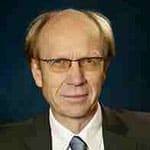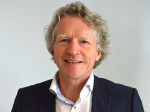Stockholm (HedgeNordic) – Trient Global Macro, the largest hedge fund in Norway, has shut down, the Norwegian financial daily Finansavisen has reported.
Following weak returns, Trient has liquidated its largest fund Finansavisen reports. What remains of the business is to be incorporated into Sector Asset Management.
At its peak, Trient Asset Management had over NOK 12 billion in AUM, concentrated mainly in the Trient Global Macro Fund. “We have relinquished all deposited funds,” said CEO Erik Skaar Syvertsen.

Weak returns over the past 18 months have led to large losses, though Syvertsen would not comment on how much of this money has been lost in outflows. The fund had not been made public and did not publish reports for public oversight.
According to an external source, the fund was worth around only NOK 1.6-1.7 billion (USD 200 million) prior to liquidation and payouts, Finansavisen wrote.
Trient and its two remaining funds, Dynamic Balanced and Global Balanced, with a total of NOK 1 billion in AUM, will now be incorporated into Sector Asset Management.
Having overseen the vast riches of Norwegian Oil fund, managed by Norges Bank Investment Management (NBIM) of which Knut H. Kjær had been the CEO of from 1997 – 2008,Kjær was at the helm and a team of industry heavyweights to launch and run Trient Asset Management. The new asset managemer had been touted from its inception in 2011 as the new darling of the Norwegian and international financial community. The fund was seeded by considerable international profiles, such as Tiger Management founder Julian Robertson, and attracted a number of institutional investors in the Americas, Europe and Asia.

Mr Syvertsen held a meeting Monday with Wollert Hvide, CEO and the largest shareholder of Sector Asset Management, whereupon it was agreed that the remains of Trient are to become part of Sector from 2017 onwards. Information regarding this agreement was made available to investors of the two remaining funds on Tuesday. Mr Syvertsen told Finansavisen that the Dynamic Balanced fund retains assets of NOK 755 million, YTD returns of 4.8% and returns for November 2016 of 1.2%. The Global Balanced Fund, with NOK 270 million in AUM, stands at YTD returns of 4.7% and experienced returns of 1% in November.
The intention is now that the 6 key people at Trient will join Sector Asset Management, with Knut H. Kjær to be appointed Executive Chairman of Sector, Mr. Hvide said. Trient Asset Management’s book value was NOK 29 million as of end 2015. Sector Asset Management’s equity stood at NOK 150 milion. How this is settled and the valuation of the company remains a private matter, Mr. Hvide wrote to Finansavisen. Trient Asset Management has achieved an operating profit of NOK 26 million as of end 2015, after labor costs and downsizing of NOK 47 million and 36 million respectively. The company did not distribute its dividends for 2015.
“No-one burned by huge losses”
Mr Kjær is not satisfied with the development of Trient’s macro fund, stating the yield overall was around the zero-mark and that it was an appropriate time to take a break.
“No-one was burned by these huge losses. But we have not been good enough. We are not satisfied with what we have delivered,” Mr. Kjær said in an interview with Finansavisen, and believes the solution with Sector Asset Management will be good for all parties concerned. “It was by no means a high-risk fund. In the past eighteen months, the results have been weaker than expected, and we opted this summer to return funds to investors,” Mr Kjær added, stating that returns since inception had been around zero. He stressed that the developments for the fund have in no way been dramatic, even as it has now been discontinued.
The fund had gotten off to a good start and had received substantial capital from international investors within a few years. “Trient Global Macro was an amazing journey from 2012,” Mr. Kjær said. However, as several insiders have argued, markets have been heavily influenced by the central bank’s policy of quantitative easing. The past year has been difficult for the hedge fund industry and especially global macro funds, with many funds closing down, Mr. Kjær said. He points to an expansionary monetary policy as an important reason why market movements have been derailed. The distinction between strategic and tactical asset allocation has been blurred, and variations in overall risk exposure have become more important than before, he emphasized. “Low interest rates over a long period affected markets,” Mr. Kjær said. “They were driven by one factor, while active management performs best with a wider variety. We realized that our way of managing money was ill suited to this scenario and we therefore decided to take a break. This was in agreement with investors,” he added.
Nevertheless, Kjær is considering launching a new product next year. “We will never rely on one factor, but the upturn in long U.S. interest rates will provide more normal market movements where fundamental analyses will again be accurate and, over time, readjust inaccuracies. “We have an investor base and a good name,” Mr. Kjær told Finansavisen.
Picture: (c) aboutpixel.de—daylight
